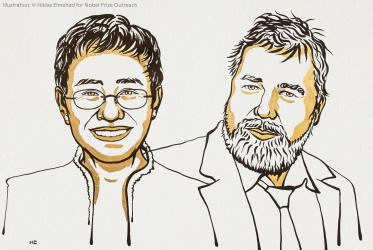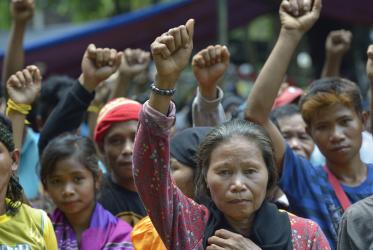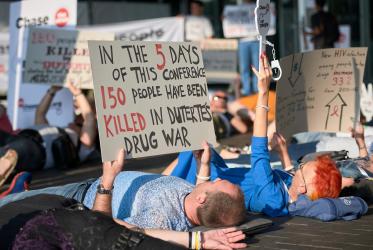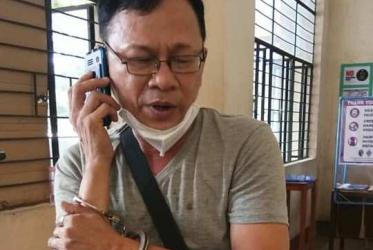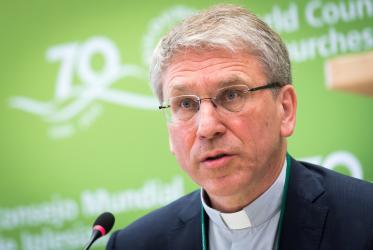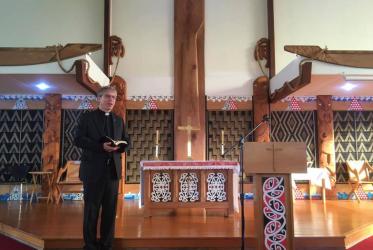Displaying 1 - 19 of 19
WCC congratulates 2021 Nobel Peace Prize laureates
14 October 2021
CCIA meets in Brisbane with focus on Pacific regional priorities
19 February 2020
WCC organises event on “The Human Rights Situation in the Philippines”
18 September 2019
WCC condemns massacre of farmers in Philippines
12 April 2019
WCC general secretary visits Aotearoa New Zealand
10 October 2016
Land rights focus of panel discussion
17 November 2015
WCC Executive Committee speaks out on migrant crises
12 June 2015
Religious leaders urge a ban on fully autonomous weapons
02 April 2015

